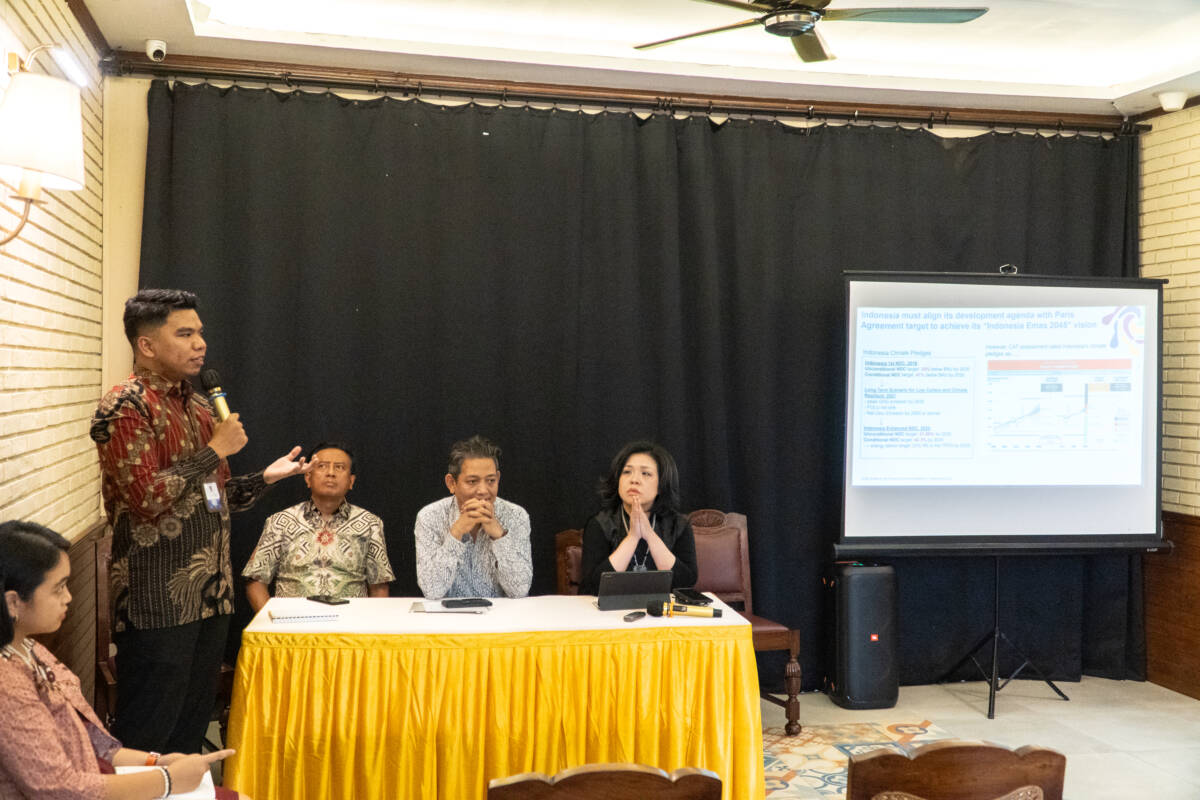Jakarta, 24 September 2024 – Indonesia is in a situation of pursuing various energy transition targets, both those that have been planned and as a need to meet the Paris Agreement targets. Cross-country collaboration is a strategic solution to pursue both investment targets and emission reductions.
The speed of increasing investment and increasing renewable energy capacity in Indonesia often does not reach the target. Meanwhile, the energy sector is a crucial sector that will significantly reduce Indonesia’s emissions.
Indonesia and China have had long diplomatic relations and have experienced various ups and downs. Currently, China’s position on the global energy transition map is very strategic. As a country with a skyrocketing economy and advanced industry, China’s role is central to the energy transition.
Arief Rosadi, Manager of the Climate and Energy Diplomacy Program and Policy, Institute for Essential Services Reform (IESR) in a media luncheon with the theme “Potential for Indonesia-China Collaboration in Green Economic Development and Clean Energy Cooperation” said that China is one of the major investors in Indonesia. In an effort to meet the target of developing renewable energy, Indonesia still identifies investment gaps, one of which is the energy sector.
“To achieve this target, an investment of 1,300 billion USD is needed, with an annual investment of 30-40 billion USD. Meanwhile, Indonesia’s renewable energy investment realization is 1.3 billion USD in the last 3 years. There is a large funding gap for the energy transition,” said Arief.
Arief added that currently the government has initiated several programs to attract renewable energy funding such as the Just Energy Transition Partnership (JETP) and the Energy Transition Mechanism (ETM). However, other investors are still needed to meet energy investment needs. China is seen as a potential collaborator, and it is hoped that civil society can play a role in encouraging bilateral cooperation between Indonesia and China.
Agung Marsallindo, Coordinator of the Southeast Asia Energy Transition Project, IESR explained that by exploring opportunities for more intensive cooperation with China, Indonesia can maximize its various potentials, but it also needs to understand the challenges that exist.
“In terms of accelerating collaboration between Indonesia and China, there are challenges both technical and geopolitical. Public perception of China-related issue is also a sensitive matter and can affect investment value, so it needs to be anticipated,” said Agung.
Christine Susanna Tjhin, Director of Strategic Studies at Gentala Institute, stated that Indonesia-China diplomatic relations are colored by various socio-political perceptions from both countries.
“Domestically, China’s policy direction is starting to shift towards a more sustainable direction, especially with the Green Belt Road Initiative (BRI) milestone, which specifically aims to make Belt Road Initiative (BRI) projects greener and Chinese investment abroad more sustainable,” said Christine.
Riyadi Suparno, Executive Director, Tenggara Strategic, explained that China is Indonesia’s strategic partner in the energy sector, with the largest ownership of coal-fired power plants with a share of 41 percent of installed power plants and 53 percent of power plants in the planning stage. However, Riyadi hopes that China’s enthusiasm in developing renewable energy can influence the increase in investment in Indonesia.
“Considering China’s current position as the largest solar module producer in the world, and China’s investment that is starting to enter the renewable energy sector such as hydroelectric power plants, electric cars, and solar module manufacturers, China is a potential investor for renewable energy in Indonesia,” explained Riyadi.
Dino R. Kusnadi, Functional Diplomat Expert Middle, Ministry of Foreign Affairs, stated in its diplomatic principles, Indonesia adheres to an active free policy which means being open to all investment and collaboration partners and those who can provide added value to Indonesia.
“We must understand that bilateral cooperation is based on common interest. Yes, currently China and Indonesia’s interests are aligned and need each other. From Indonesia’s side, we must also continue to increase our capacity so that this bilateral cooperation brings added value to Indonesia,” said Dino.

